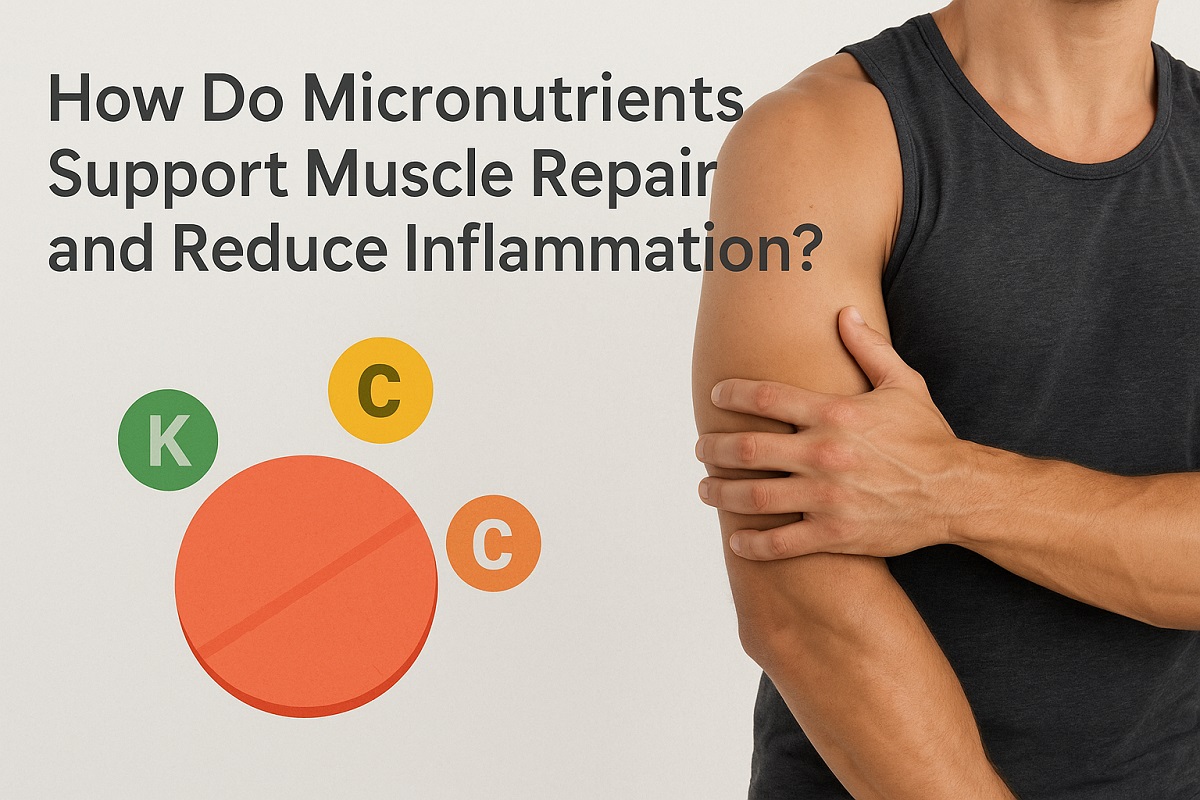How Do Micronutrients Support Muscle Repair and Reduce Inflammation?

Proper Post-workout recovery does not only involve stretching or resting the body, but also what nourishes it. Although protein and carbs tend to take the center stage when it comes to nutrition, micronutrients also have an important role to play in repairing the muscle fibers as well as reducing swelling.
They can lengthen recovery times, cause more soreness, and negatively affect long-term performance when they are neglected. Here, one can visit the Muay Thai gym at Koh Phangan or at other prominent places where one can get the right care for their body.
This is what happens with micronutrients and how they can enhance the faster healing process and decrease the stiffness of muscles after a hard gym workout.
Why Are Micronutrients Important in Post-Workout Recovery?
Micronutrients – The vitamins and minerals are cofactors in so many biochemical processes. Muscles have oxidative stress, inflammation, and microtears after intense exercise. Without proper micronutrient supplementation, your body does not have the fuel that it needs to repair already damaged fibers.
This can translate to soreness and fatigue. Contrary to macronutrients that provide fuel, micronutrients tune the recovery engine, reinforcing connective tissues, enhancing protein synthesis, and combating inflammation on the cellular level.
How Do Antioxidant Vitamins Reduce Muscle Inflammation?
Vitamins C and E are potent antioxidants that counter the formation of free radicals that are generated in the process of intense training. When uncontrolled, free radicals destroy muscle cells and aggravate the post-exercise soreness.
Vitamin C reduces oxidative stress and improves the production of collagen, important in the effort to repair tendons and ligaments. Vitamin E, conversely, cushions cell membranes; in other words, the muscle fibers are retained during recovery. In combination, they make the body less stiff and faster to heal.
What Role Does Vitamin D Play in Muscle Strength and Repair?
Vitamin D is necessary for the absorption of calcium, which can affect muscle contractions and bone strength. Muscle weakness with a long recovering time has been attributed to a deficiency.
Proper Vitamin D assists in controlling inflammation by regulating the immune system to make sure that the muscles can heal without necessarily causing much swelling. To the fitness and sports enthusiast, optimal levels of Vitamin D translate to fewer injuries, stronger muscles, and faster repair.
How Does Magnesium Aid in Relaxation and Reduce Cramps?
Magnesium can be referred to as the recovery mineral, as it helps in the relaxation of muscles and the production of energy. Magnesium is lost in the sweat during workouts, which results in muscle spasms, rigidity, and tiredness.
The replenishment of magnesium also eases muscle tension, in particular by relieving post-workout tightness and cramping. Additionally, magnesium aids in the production of ATP (adenosine triphosphate) energy currency in cells, and it is essential to the process of repair and recovery of muscles.
Why Is Zinc Crucial for Muscle Protein Synthesis?
Muscle growth and repair strongly rely on protein production, and zinc is one of the important cofactors in this process. Zinc assists in controlling the level of hormones like testosterone that directly impact the process of repairing and rebuilding the muscles.
It also boosts the immune system and minimizes the chances of prolonged post-workout inflammation. Without zinc, the process of healing is slow, and this leaves muscles more susceptible to soreness and exhaustion.
With the right eating and the right cooling strategies, you can reduce the discomfort after working out, maximize recovery, and boost long-term performance.
15
September 2025
Post By Admin


